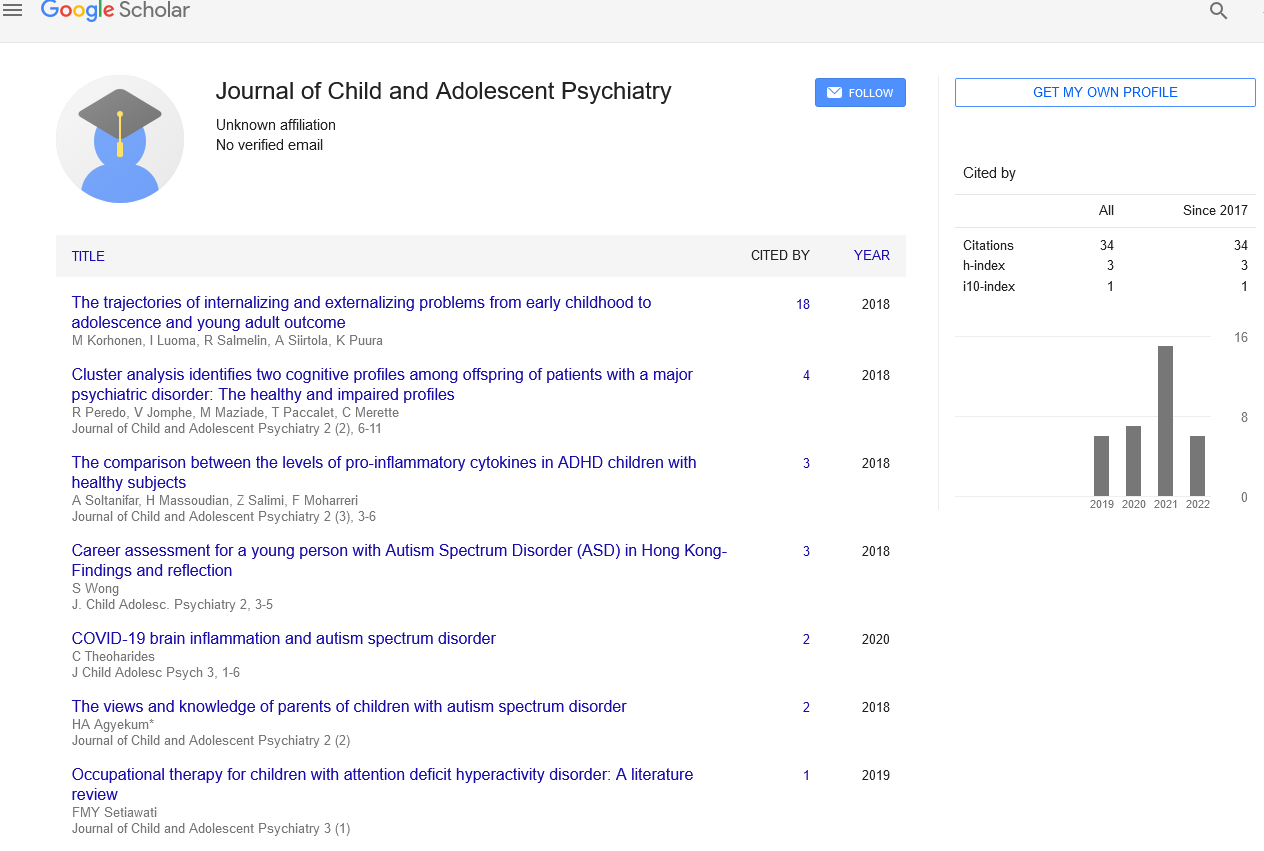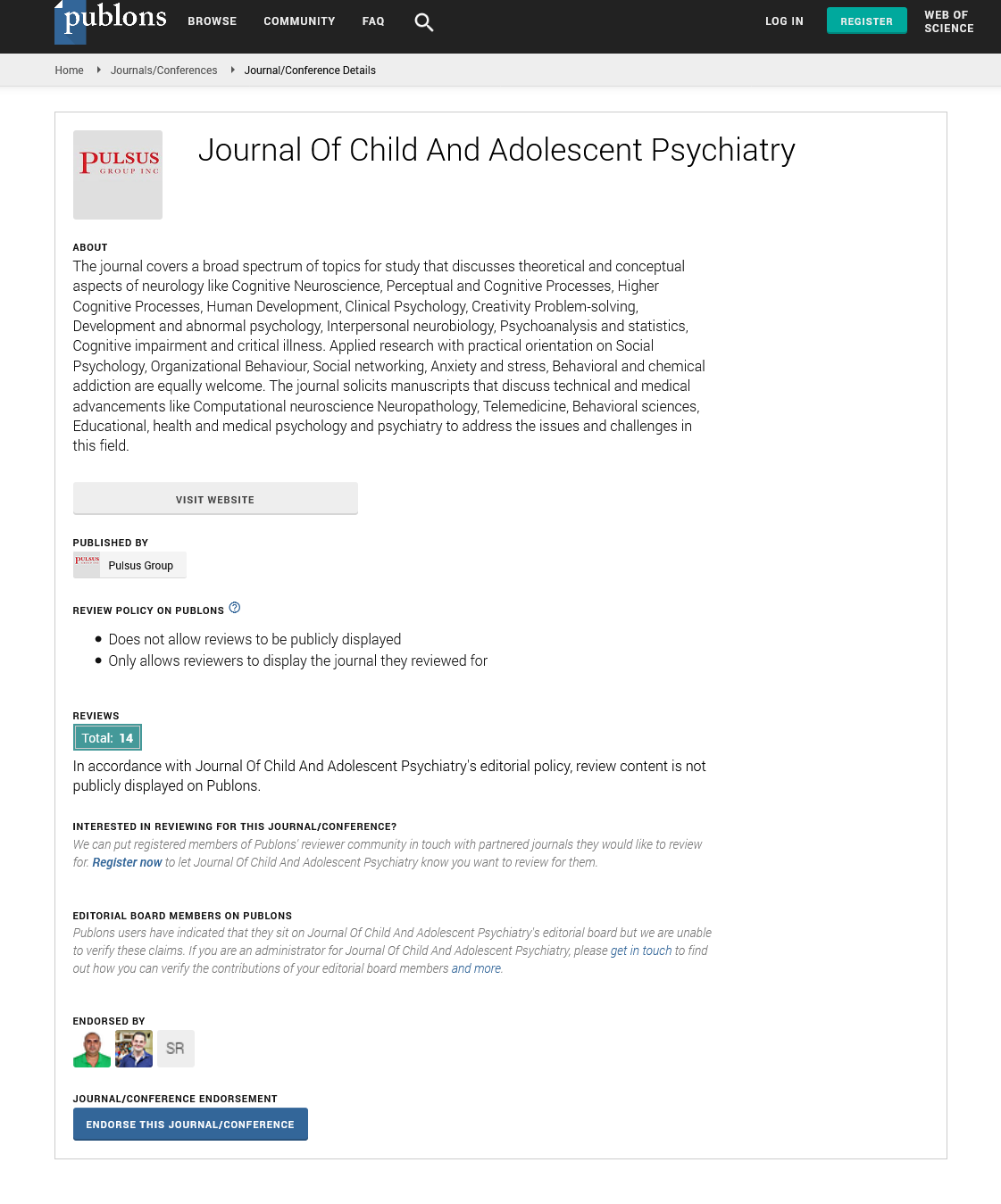
Sign up for email alert when new content gets added: Sign up
Abstract
A critical survey of psychiatric diagnostics, clinical practice, and the functionality of service system from the point of view of clinical family counseling
Author(s): Heli Pajari*, Lisa Rekola and Antti MattilaOBJECTIVES: To make visible an enormous problem of psychiatric diagnostics without comprehensive examinations as a necessity.
METHODS: This prospective research is based on clinical evaluation by three clinicians, of patients assigned to see child psychiatrist Heli Pajari from January 1st to December 31st 2016 at family counseling office. Information of the past medical and family history was also collected.
RESULTS: Participation rate was 100% (52 children). In almost all cases, there were neuropsychiatric-like symptoms (e.g. in executive function) at the same time with psychiatric challenges, and understanding those symptoms seemed crucial in assisting the child. The lack of comprehensive evaluation was seen to lead to prolonged/ ineffective processes that led to at its worst to wrong direction gnawing the wellbeing of the child and his parents and parents´ experience of their own parenthood. This could be seen in all stages of health care system. The data collected of family background history by interviewing parents gave a frequent worry of incomprehensive processes causing serious psychiatric illness in the long run.
CONCLUSION: Psychiatric diagnosis should be revaluated with a demand for thorough, comprehensive evaluation (including neuropsychiatric viewpoint) before setting a diagnosis, and daily life observations made by patients/ parents should be more valued. Also neuropsychiatric diagnoses should be revaluated by taking into account the daily life observations of diversity/ variety/overlapping/transformations/varied appearance of symptoms, and their strong impact to psychic health. If we don´t revaluate diagnostics, we are facing incomplete and ineffective processes, enormous economic costs and ethical problems and questions of human rights.
Full-Text | PDF





